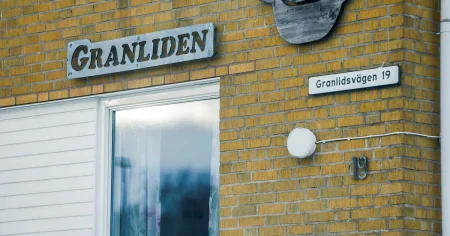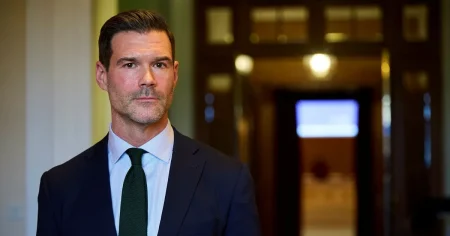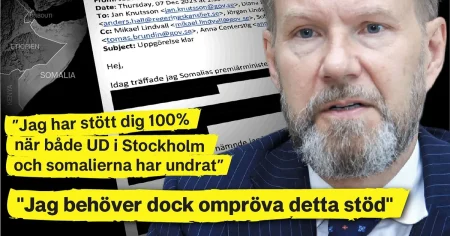The Nordic justice ministers convened in Copenhagen with representatives from Google, Meta, Snapchat, and TikTok to address the escalating issue of online gang recruitment of children and young people. This meeting, held on a Monday, followed an earlier call to action by the ministers demanding that these platforms assume greater responsibility in preventing the exploitation of social media for criminal purposes. The ministers expressed deep concern over the blatant use of these platforms by criminal gangs to lure vulnerable youth into a life of violence. The encrypted messaging apps Signal and Telegram, also implicated in this activity, were invited to participate in the discussions but declined to engage, raising serious concerns about their commitment to addressing the problem.
The ministers emphasized the urgency of the situation, highlighting that children and young people are heavily present on these platforms, making them easy targets for criminal gangs. The gangs initially engage with youth on mainstream platforms like TikTok, Snapchat, and other social media sites before luring them into more private, encrypted channels like Telegram and Signal. This two-stage recruitment process exploits the accessibility and reach of popular social media platforms, making the need for intervention and preventative measures even more critical. The ministers underscored the importance of a proactive approach by the platforms to identify and remove harmful content, demanding a combination of AI-powered tools and manual review to effectively tackle the issue.
The meeting resulted in the presentation of action plans by several of the tech companies. These plans centered on enhanced collaboration with law enforcement, specifically through the establishment of Internet Referral Units. These units facilitate the sharing of information and intelligence between the police and the platform providers. This collaboration will enable law enforcement to quickly alert the platforms about new symbols, expressions, or aliases used by criminal actors. The ministers stressed the importance of proactive content moderation by the platform providers, pushing for a combination of AI-powered tools and manual review to effectively identify and remove content related to criminal activity. The objective is to prevent these harmful materials from reaching vulnerable young people and disrupting the recruitment process.
While the proposed action plans were considered a step in the right direction by the ministers, they also expressed reservations about the lack of concrete action. The Danish Justice Minister, Peter Hummelgaard, pointed to the positive nature of the proposed collaboration, but underscored the need for tangible results. This sentiment was echoed by Sweden’s Justice Minister, Gunnar Strömmer, who emphasized that the true measure of success will be the actual implementation and effectiveness of the proposed measures. Both ministers agreed that the tech companies must demonstrate a genuine commitment to combating the problem and translate their words into concrete actions. They acknowledged the willingness of the platforms to cooperate with law enforcement and assume greater responsibility, but stressed that the focus must remain on practical solutions and measurable outcomes.
Beyond simply removing harmful content, the Nordic ministers also urged the tech companies to re-evaluate how their algorithms influence content flow and contribute to the exposure of young people to gang-related material. The goal is to modify these algorithms to prevent children and young people from being inundated with such content. This proactive approach to algorithm adjustment is crucial in preventing the normalization of gang culture among young users and disrupting the recruitment pipeline. The ministers pressed the platforms to demonstrate the same level of systematic effort and coordination in combating online gang recruitment that law enforcement agencies are now exhibiting across borders, particularly between Sweden and Denmark.
Ultimately, the effectiveness of these measures will be judged by their real-world impact on the problem of online gang recruitment. The ministers stressed that action plans, while a necessary starting point, are not sufficient in themselves. The public’s focus will be on the tangible results achieved by the platforms in addressing this critical issue. The ministers expressed hope that the collaboration between law enforcement and the tech companies, combined with proactive content moderation and algorithm adjustments, will lead to a significant reduction in the online recruitment of children and young people by criminal gangs. They underscored that continuous monitoring and evaluation of these efforts will be crucial to ensure their long-term effectiveness and adapt strategies as needed. The overall message was clear: the platforms must translate their commitments into concrete actions that demonstrably protect children and young people from online exploitation by criminal gangs.














